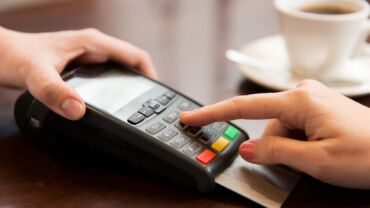In April, consumers in Delaware filed a class action lawsuit against food delivery app DoorDash, alleging the company collected tax on deliveries to customers in states that do not impose sales taxes (Moore et al. v. DoorDash, Inc., Case No. 1:19-cv-00636, Delaware District Court, 04/05/2019). This case is the latest in a string of overcollection lawsuits springing up in recent years against retailers such as Wal-Mart, Papa Johns, and Target. While many of these suits are ultimately unsuccessful, they still involve time, money, and reputational risk. Restaurants and food delivery apps need to be proactive about their tax liabilities. It’s already complex to determine taxability of food and beverages; add in third parties, delivery, and online transactions, and it becomes a potential minefield. Few states have issued specific guidance on how to calculate sales tax on food ordered and delivered through apps like DoorDash, UberEats, Seamless/GrubHub, and Postmates. Below are a few issues to consider when making these determinations.
Who is the seller?
Each food delivery app works a little differently – some only accept electronic payments while others allow the customer to pay with cash; some are affiliated with the restaurant while others are third parties; some use the restaurant’s delivery personnel while others employ their own delivery staff or designate deliverers as independent contractors. Each of these arrangements, as well as the contractual agreements among the parties, can impact who is responsible for collecting and remitting sales tax on an order.
A 2018 Utah Private Letter Ruling determined that a food delivery website was not a seller and instead was acting as a middleman providing nontaxable order placement services under the following facts:
- Company maintains and operates a website that anyone can visit to order food items from participating restaurants. The restaurants provide the Company with the menu items to be shown on the website, and the prices for the various items. … The Company’s terms and conditions make it clear that the restaurant is the seller of the food and responsible for its preparation and quality. … When an order is placed, the Company promptly forwards the customer’s order to the designated restaurant. Once the restaurant confirms, accepts and prepares the order, the orders are typically either picked up by the customer or delivered by the restaurant’s employees. If a customer did not pay when the food was ordered, they may pay the restaurant upon pick-up or the delivery person upon delivery. In extremely rare cases, the Company may subcontract with delivery service providers to deliver the food, in which case they retain the charge for delivery. The Company never takes possession nor title of the food at any point during the transaction. Utah Private Letter Ruling, No. 17-001, 03/23/2018.
Meanwhile, a recent Alabama legal opinion held that a food delivery app was acting as a courier of the food rather than a reseller in the following circumstances:
- The customer places an order through the Delivery Service’s app or website and pays the Delivery Service for the retail price of the food, the applicable taxes, and a delivery charge or booking fee. The Restaurant advises the Delivery Service of the retail price of the food and the applicable taxes to be charged. The Delivery Service remits the price of the food and the taxes to the Restaurant. Under the Restaurant’s contractual agreement with the Delivery Service, the Restaurant is responsible for remitting the tax to the taxing authorities. The Delivery Service picks up the order from the Restaurant and delivers it to the customer who placed the order. Alabama Sales Tax and Restaurant Delivery Service Opinion No. 20180926, 03/26/2019.
By contrast, the New Jersey Division of Taxation informed Thomson Reuters in December 2018 that similar circumstances “suggest that the delivery company is the seller, as the delivery company takes the customer’s food order, and also accepts payment.” In that case, the delivery company can issue a reseller certificate to the restaurant. (NJ Email Inquiry on Restaurant Delivery Services, 12/04/2018, available on Checkpoint.)
New marketplace facilitator laws add another layer of complexity to the analysis. If the app is deemed a marketplace facilitator, it may be required to collect tax on the transactions facilitated through its platform.
What is taxable?
Anyone who works with food and beverage taxation knows that rates and taxability can vary wildly even within the same five-digit zip code. In most cases, the delivery destination will determine which rates to apply. However, if the purchaser chooses a pick-up option in the app, tax may need to be calculated based on the restaurant’s location. After determining the jurisdiction, the next point of analysis is the taxability of each item. With food and beverage, this can come down to seemingly trivial differences – for example, in New York, a sliced bagel is nontaxable but if you order it with cream cheese or butter, it becomes taxable.
Food delivery apps also need to consider whether delivery charges, service fees, and tips are taxable in each jurisdiction.
Delivering Success
As the DoorDash case demonstrates, overcollection of sales tax can risk customer loyalty and class action lawsuits. While undercollection can result in painful audits with steep penalties and interest. It’s important to closely review the facts and circumstances of each case, as minor changes in fact patterns can lead to different results, especially as new marketplace facilitator laws shift the legal obligations of the parties involved. Restaurants and apps should keep detailed records of taxes collected and remitted and companies operating apps or restaurants in many different jurisdictions will want to be able to demonstrate a consistent tax policy and tax determination logic. In addition, restaurants and food delivery apps need to carefully review any contractual agreements discussing which party is responsible for calculating, collecting, and remitting tax.
About the Author Melissa A. Oaks is a Proposition Manager for Indirect Tax at Thomson Reuters. Prior to this role, Melissa was the Managing Editor of State & Local Tax for Checkpoint Catalyst, where she specialized in complex nexus, apportionment, and e-commerce issues. Before joining Thomson Reuters in 2013, Melissa practiced law in New York. Melissa is a graduate of Cornell University and Columbia Law School and earned an LL.M. in Taxation from NYU School of Law. Twitter: @melissaaoaks






